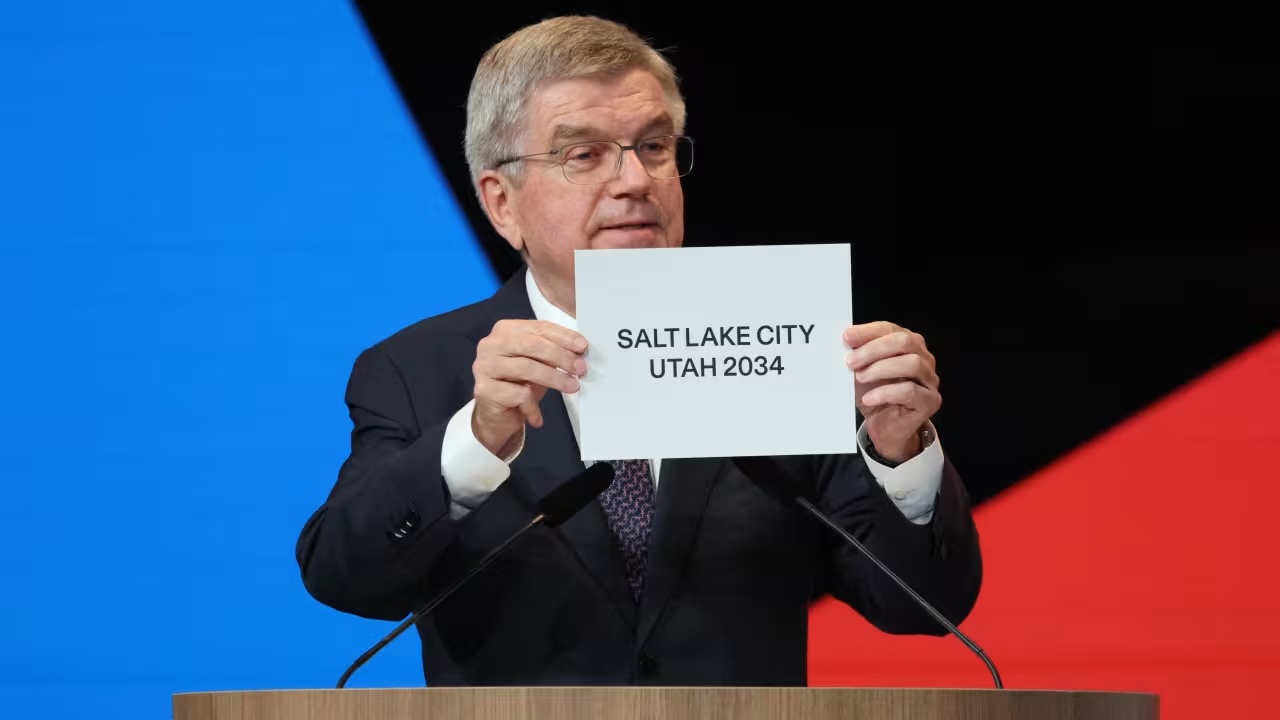
It's Tuesday afternoon—the sun hadn't even set yet—and Olympic fanatics were already flocking to the streets of downtown Salt Lake City. Crowds were forming, and tents were even getting pitched, in anticipation for the Wednesday morning vote by the International Olympic Committee, a decision that would finally select the host city for the 2034 Winter Olympics. The U.S. hasn't hosted a Winter Games since 2002 (when Salt Lake City hosted its first Games), so news that Utah would once again boast the ultimate winter sports destination was reason enough to stay up until 3am. It was the middle of the night, and cheers (+ fireworks and confetti) echoed through the valley as I.O.C. President, Thomas Bach, revealed the news.
It's undoubtedly a historic day in the Wasatch, but the good news comes with one specific condition: Olympic officials have the right to pull the Games if the U.S. authorities undermine the World Anti-Doping Agency. A heavy, and surely nuanced, stipulation, so here's what we know about it all.

What We Know:
Salt Lake City hosted the 2002 Winter Olympics, but there ended up being a bribery scandal around the city's effort to win the Games. Turns out their campaign was desperate, to the point where "Salt Lake City Olympic officials showered Olympic delegates with cash payments and an array of gifts that ranged from free trips to the Super Bowl to doorknobs and furniture." I.O.C. delegates were receiving improper benefits left and right, and reports of this Olympic corruption resulted in the resignation of 10 I.O.C. officials, as well as a stricter outlook on the host city decision making process moving forward.
Now, more eyes are on the SLC bid committee than ever before, so it's hard to think that any direct payments or lavish travel expenses didn't go unnoticed. Only time will tell, and in the meantime it looks like Salt Lake City's ethical eyes have shifted to an equally serious matter: doping in international sports. Following the case of two dozen Chinese swimmers who tested positive for a banned substance before the Tokyo Olympics in 2021, the World Anti-Doping Agency has been under heavy criticism from the United Staes. An investigation has been opened, and the WADA's attention to the matter (or lack thereof) has raised eyebrows around intentions and willingness to police anti doping rules. Given the criticism, the Salt Lake City bid contract has been revised to allow the International Olympic Committee to terminate the host city if they undermine the authority of the World Anti-Doping Agency.
What To Expect:
There's definitely tensions between the United States and the International Olympic Committee, as I.O.C. officials don't appreciate the Country's efforts to investigate sports doping to this degree. We wouldn't be surprised to see a handful of congressional meetings or hearings leading up to the 2034 Games, but that's a decade away so let's focus on more concrete details:
- The price tag for hosting the 2034 Winter Games is roughly $2.83 billion.
- The athletes village will be on the University of Utah campus.
- Park City Resort will host all halfpipe competitions again.
- Big Air will head to downtown SLC, with plans to build infrastructure in Park Place. Expect to watch triple corks in a parking lot two blocks from Temple Square.
- The 2034 Olympic plan requires no new permanent construction, with all 13 venues from the 2002 Games already in place.